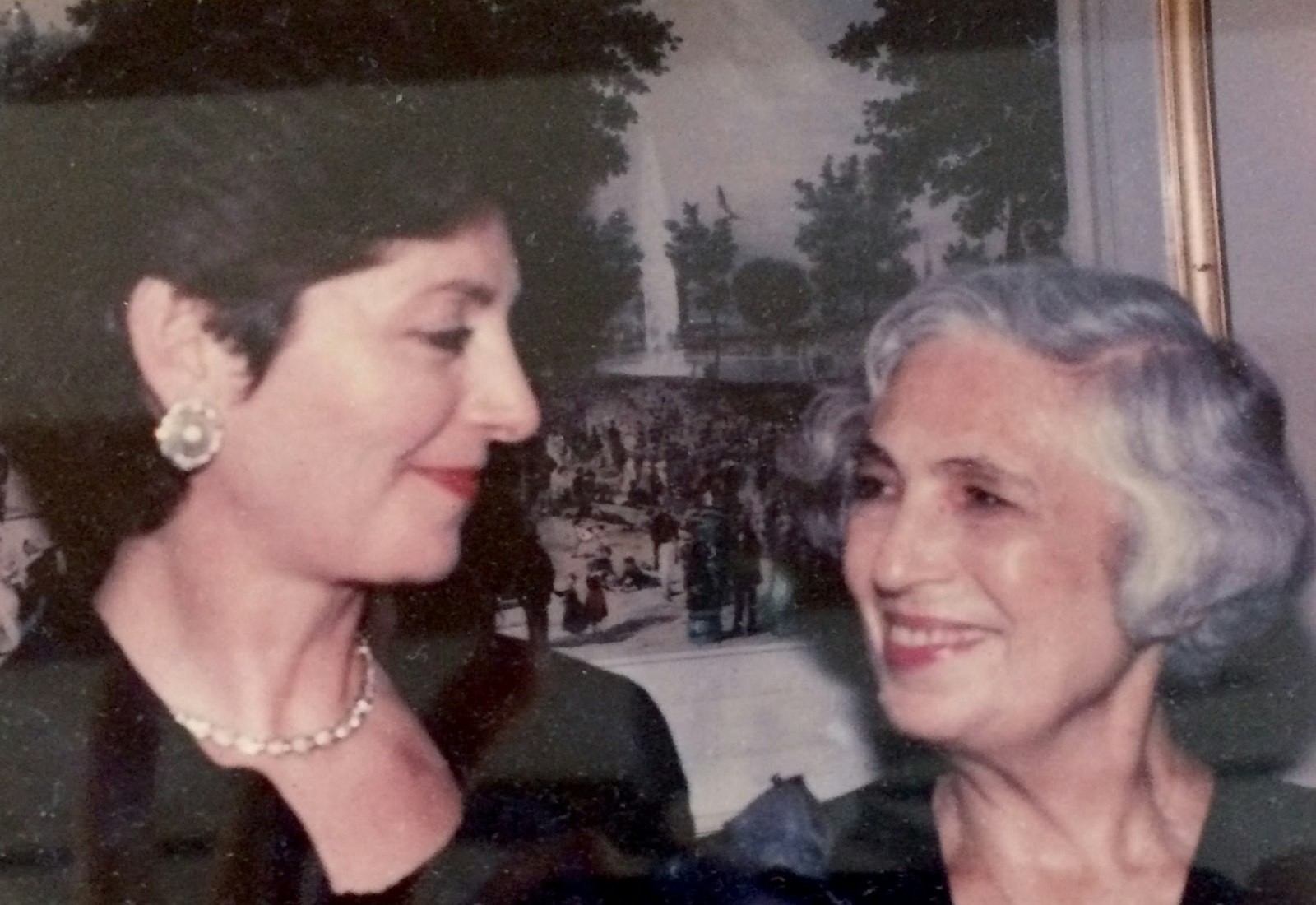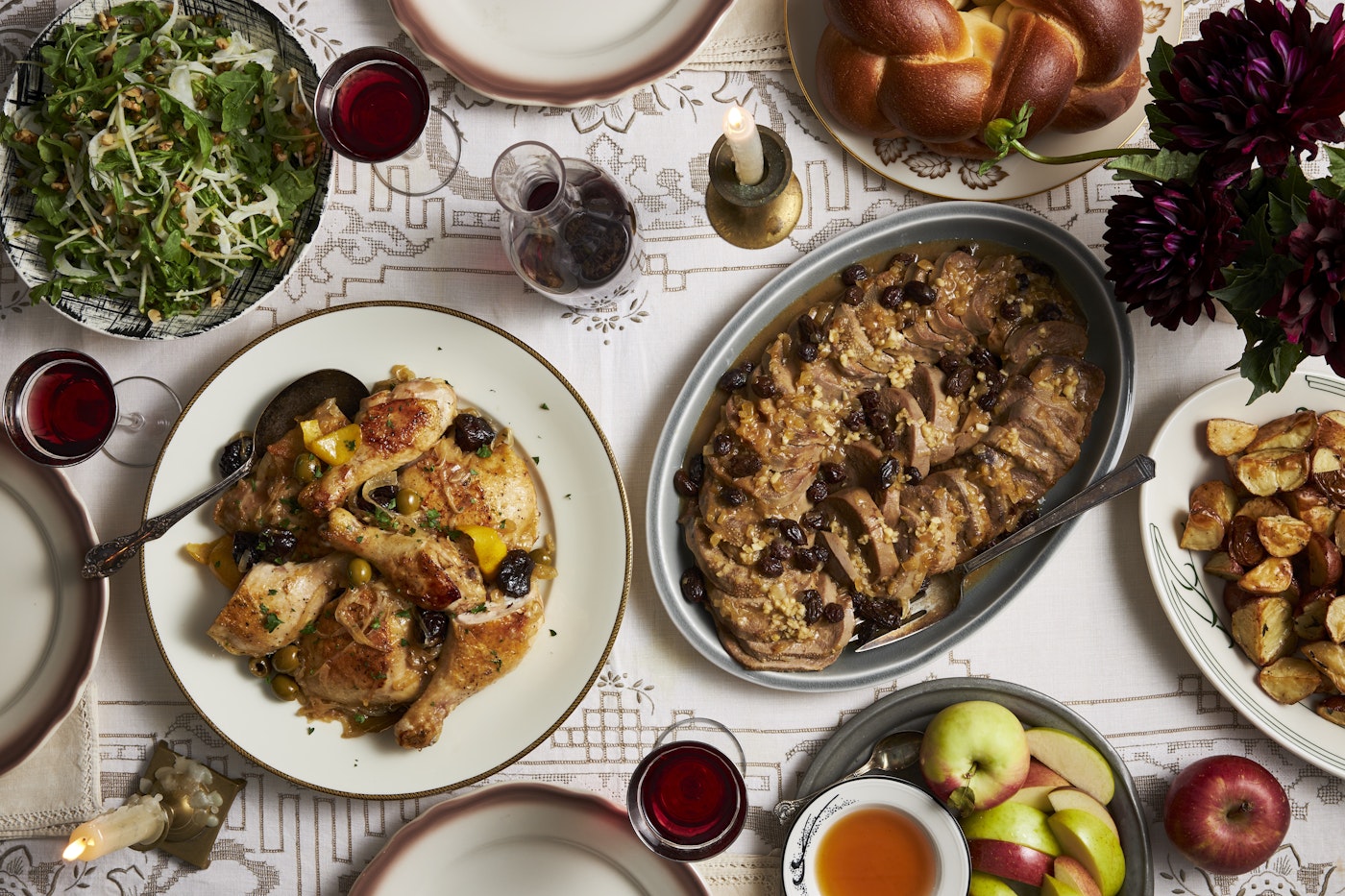Shared by Anna Gershenson


The first Rosh Hashanah dinner Anna Gershenson hosted came on the heels of the saddest moment of her life. Her mother Rhoda, who Anna remembers as “the heart and soul of our family,” passed away just before the holiday. “I was crying incessantly for weeks. I couldn’t imagine living without my mom, but I had to. I was now the oldest woman in my family…. I had to become the matriarch,” she says. Through the haze of grief, she stepped into the role, making her mother’s kreplach, or chicken-filled dumplings in a clear broth, and teiglach, a sweet pastry boiled in honey.
Rhoda had “this kind of magnetism and life force,” Anna adds. She also had a resourcefulness that saw her through two wars. Born in Riga, Latvia in 1926, Rhoda attended the Hebrew gymnasium there until Germany invaded the Soviet Union in the summer of 1941. She used to tell Anna about the summer day when everyone around her started to scream “run to the train station.” Along with her mother Hanna and uncle, she grabbed what she could and caught a packed train headed deep into Russia.
Of the three, only Rhoda would survive the journey. She spent the long years of the war living close to Siberia with relatives who also fled Latvia. They became her adopted parents and after the war, Rhoda gifted them the apartment she and her mother had left behind in Riga. In June of 1945, Rhoda met Pinkhus and by December they were married and had Anna in 1947.
Being Jewish in 1950s Latvia was different from other Soviet republics, she says; her family didn’t feel pressure to keep their Jewish identity secret. For holidays like Rosh Hashanah, Anna would help her mother make dishes like gefilte fish from freshwater fish, chopped veal liver, braised tongue with raisins, and tzimmes. Before Passover, they would bring flour to their local synagogue where matzo was baked fresh each year. Her family also went to services there, “Even though we knew there were KGB agents,” Anna explains. There were still risks, but there was no question that her parents would keep the traditions alive.
In 1975, Anna and her family were able to leave the Soviet Union, while Rhoda was a refusenik, unable to leave the USSR. “Mom said she will fly on her wings to us,” Anna recalls and a year later, she and Pinkhus did.
When Rhoda passed away from cancer, she left behind a notebook with her recipes. As a professional cook and recipe writer, Anna has lent her own touch to the menu for holiday gatherings over the years, adding dishes like a bright arugula and fennel salad inspired by her life here. But her mother’s spirit and both of her parents’ love of Jewish life is still with her always, particularly at moments of Jewish celebration.
“How wonderful it was that our family gave us this gift of what it meant to be Jewish, not just through anti-semitism, but through these beautiful traditions that came to us through generations,” Anna says. “My parents gave us that gift and we are continuing it.”
Hear a recording of Anna sharing her family story at a live Schmaltzy event here.
